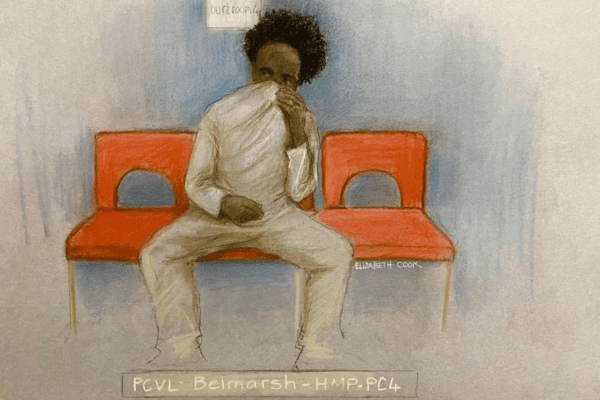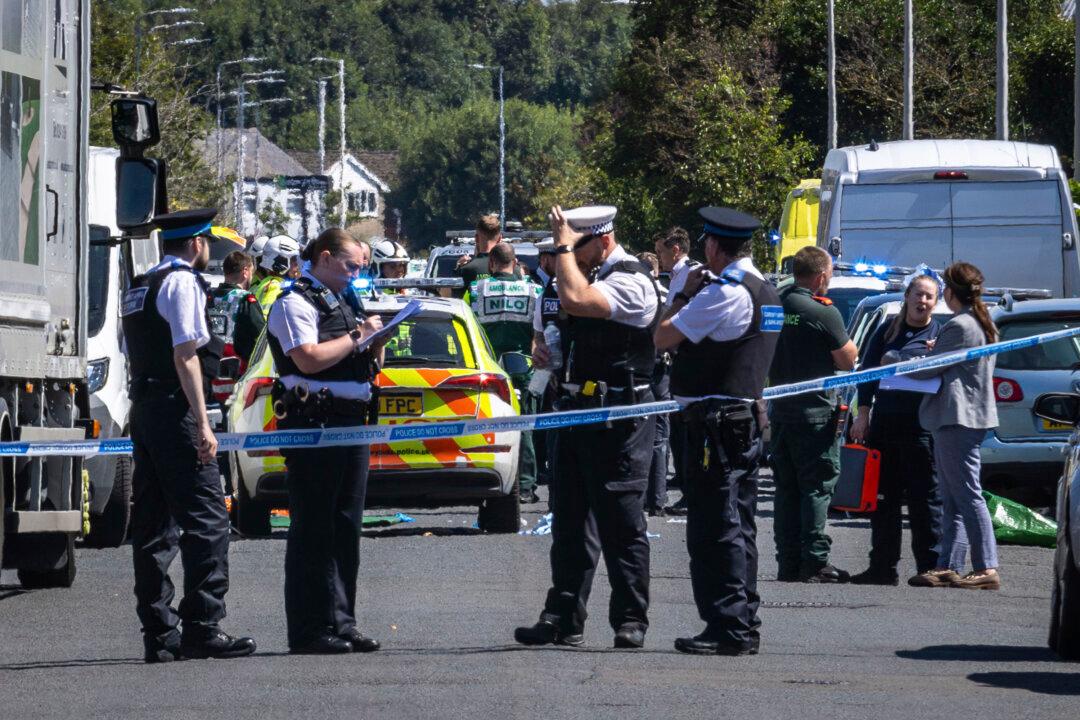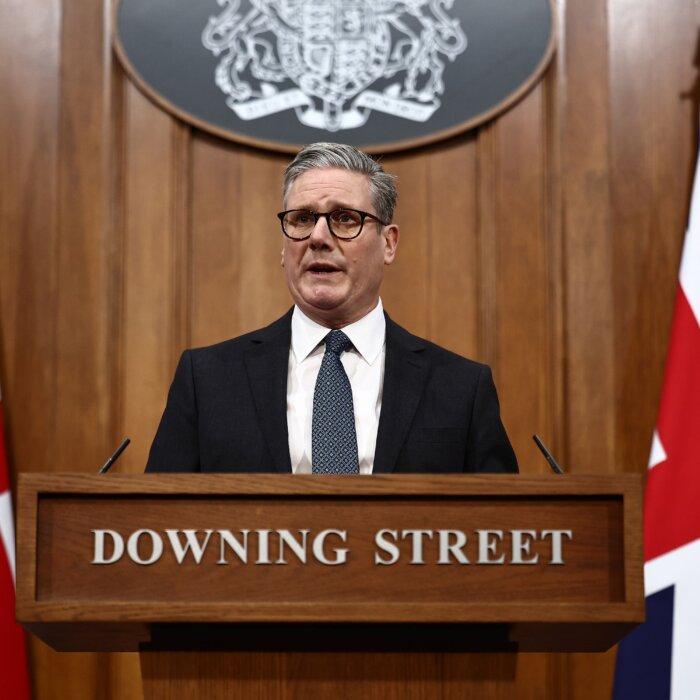The threat to UK national security comes “from within” and is compounded by systemic complacency, lack of resources, and fear among authorities of accusations of racism when exercising power, a security specialist has warned.
Moign Khawaja, professor of security studies at Dublin City University, called for more government investment and community engagement to address terrorism concerns. He stressed the importance of ensuring that public reports of suspected terrorism-linked activity “are not swept under the carpet.”
“Often individuals, who are reported, somehow slip the net. And at times it’s complacency. Sometimes the fear of being accused of racism plays a role, because if the public refers an individual to the authorities or if the police go ahead and arrest this individual, they might be perceived as racist.
“The rule of law should be the same for any offender, regardless of their skin colour or ethnicity.
“Policing needs to be tightened. Police forces need more investment and powers. At the same time community needs to be engaged and people need to be entrusted with their opinions,” Khawaja said.
The UK’s counter-terrorism strategy has been questioned after it emerged that the Southport attacker Axel Rudakubana had been referred to the Prevent programme prior to killing three children and seriously injuring 10 others in July 2024.
Introduced in 2003, Prevent aims to divert people, especially teenagers and other young people, away from Islamic and other forms of extremism. However, since its introduction, several attacks were carried out by individuals previously referred to the programme.
According to Khawaja, Prevent has not been entirely unsuccessful, but he acknowledged the scheme’s shortcomings, including failures such as Rudakubana’s case. Reflecting on its implementation, he noted that Prevent has been criticised for being “quite shallow” and “not very integrated.”
Khawaja said it’s important to avoid scapegoating any single community, but added that those who come to the UK “should be willing to assimilate.”
‘New’ Threat
Addressing the nation on Tuesday, Prime Minister Sir Keir Starmer said the UK faces a “new” threat of terrorism, which the existing framework and laws are not adequately equipped to handle.He attributed acts of extreme violence to “loners, misfits, young men in their bedroom,” who access harmful online content and commit violent acts for attention, sometimes influenced by terrorist groups.
“It is a new threat, it’s not what we would have usually thought of as terrorism when definitions were drawn up, when guidelines were put in place, when the framework was put in place and we have to recognise that here today,” he said, pledging reforms.

Khawaja agreed that while the threat may appear novel, its roots are not.
“The frequency has increased over the years, and the attackers’ profile is a bit different from what it was before. They are younger, and most of them, especially in the Southport case, are recent converts.
Legal Framework
Last year saw an annual increase in the number of terrorism-related arrests, according to Home Office figures. By June 30, 2024, 252 individuals were in custody for terrorism-related offences, up from the year before.“We’re encountering more volatile would-be terrorists with only a tenuous grasp of the ideologies they profess to follow. People viewing both extreme right wing and Islamist extremist instructional material, along with other bits of online hatred, conspiracy theories and disinformation,” said MI5 Director General Sir Ken McCallum.
Current legislation, including the Counter-Terrorism and Border Security Act 2019, criminalises accessing terrorist material online and bolsters border controls.
Despite Rudakubana’s guilty plea to charges including the production of the deadly poison ricin and possession of an al-Qaeda training manual, his case has been deemed insufficient to establish clear terrorist intent.
Khawaja said that as long as the motivation for an attack is political, it should fall under terrorism.
“You can have a number of definitions but if you start making exceptions, we are going down a slippery slope. You have to call a spade a spade. And if someone had any kind of political motivations, whether it’s Islamic or whether it’s far-right or far-left, it is terrorism,” he said.

Ideological Complexity and Mental Health
The interplay of ideology, social factors, and mental health creates fertile ground for extremism. Khawaja emphasised that it’s rarely a single factor, describing it as “always a combination” of issues, including social isolation, economic hardship, and evolving technology.“You have these online platforms that are acting like echo chambers, where individuals hear the same thing over and over again. Their views are reinforced. It just helps them commit whatever they think is the right thing to do, whether it is stabbing young girls or shooting innocent people,” he said.
Peer pressure, particularly among recent Islam converts, further exacerbates the issue, Khawaja said, adding there is lack of follow-up by communities to ensure proper integration.
The intersection of mental health and terrorism poses additional challenges. MI5 has highlighted the increasing difficulty of determining whether attacks are driven by ideology or mental health issues.
While the government’s review of Prevent thresholds considers cases involving mental ill-health or neurodivergence, Khawaja warned against focusing solely on mental health and neglecting ideological factors.
“I think that’s quite wrong, and it can backfire. You have to tackle both,” he said.
Looking ahead, Khawaja called for reforms to the UK’s counter-terrorism strategy. These include creating more comprehensive public anti-terrorism education, encouraging community participation, and addressing the use of AI by offenders to plan and execute attacks.







